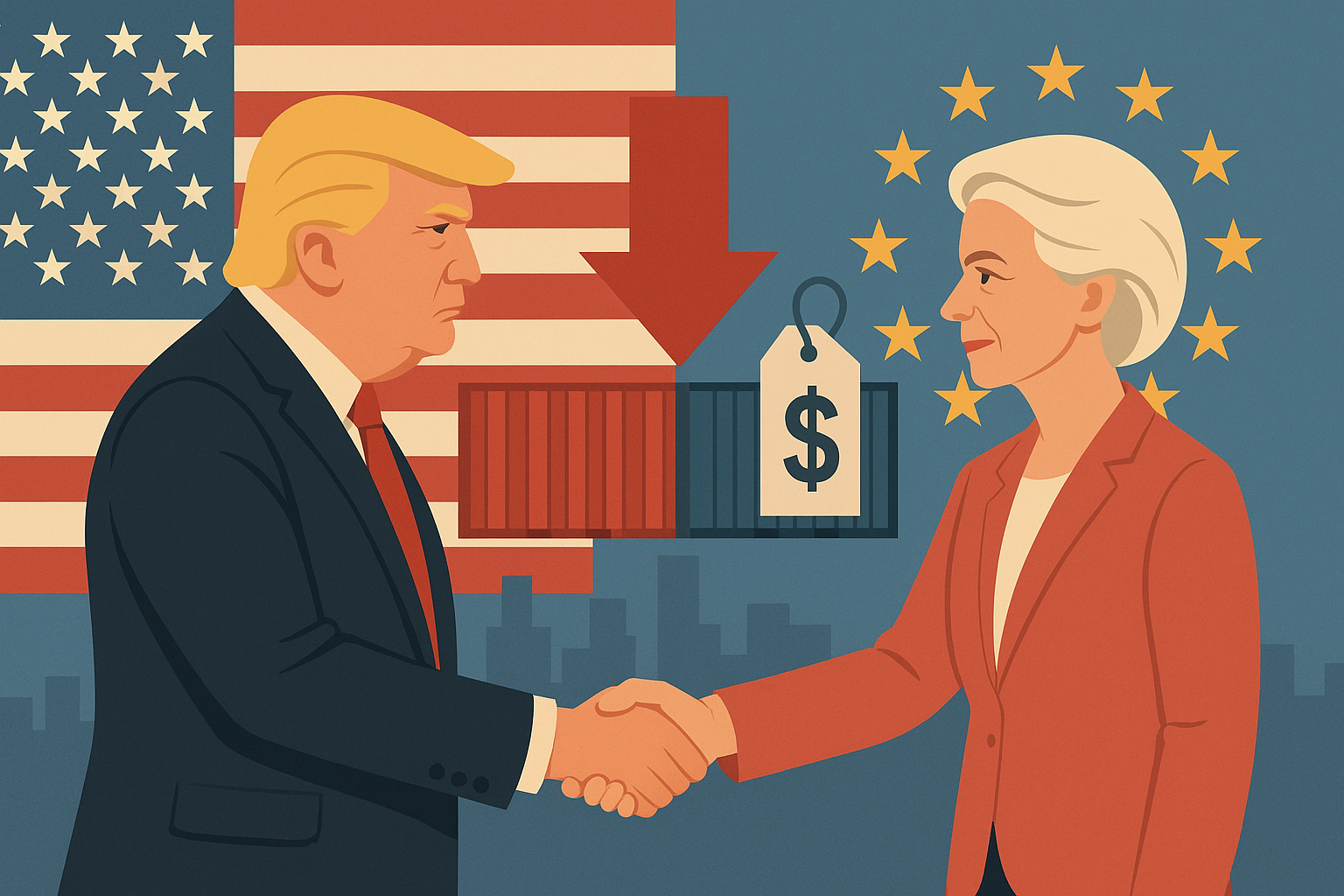In a significant moment for transatlantic trade and market stability, President Donald Trump has postponed the planned 50% tariffs on imports from the European Union, citing a “very nice call” with European Commission President Ursula von der Leyen. Originally set to take effect this week, the tariffs are now delayed until July 9, buying both sides more time to reach a resolution.
According to The Guardian, this diplomatic pause followed growing concern from business leaders and market analysts about the disruptive economic consequences of steep tariffs on critical European goods. The decision has been welcomed by global investors, who had braced for increased market volatility and supply chain disruptions.
A Temporary Reprieve for Markets
The tariff delay comes as a relief for equities, currencies, and trade-sensitive sectors across both the U.S. and Europe. U.S. and European stock indexes rose modestly following the announcement, while the euro regained slight ground against the dollar.
“While tensions remain, this delay de-escalates immediate trade risks and creates room for a negotiated outcome,” said Jennifer McKinnon, Global Trade Analyst at Barclays Capital, in a note to clients Monday morning.
Among the sectors most exposed are automobiles, aerospace, luxury goods, and agriculture—all of which would have been impacted by broad-based import penalties.
Why This Matters for Investors
Tariff threats between the U.S. and EU have long been a source of friction, but a full-blown trade escalation between the world’s two largest economic blocs could undermine global supply chains, increase inflationary pressures, and dent earnings for multinationals that rely on transatlantic commerce.
According to a 2024 report by the Peterson Institute for International Economics, a 50% tariff on EU imports could shave off 0.3–0.5% of U.S. GDP in the first 12 months, while also reducing European export revenue by up to €80 billion annually. Major publicly traded firms such as BMW, Airbus, LVMH, BASF, and Nestlé would likely see the brunt of revenue hits from higher U.S. tariffs.
In the U.S., industries that depend on European imports—including automotive parts, pharmaceuticals, and luxury retail—could face margin pressure and consumer price hikes.
What’s Next: July 9 and Beyond
While the delay avoids immediate disruption, the new July 9 deadline looms as a potential flashpoint. Trade negotiators on both sides now face just over a month to strike a deal or risk plunging back into tariff chaos.
President Trump, known for using tariff threats as negotiation leverage, hinted at further action if “a fair and reciprocal deal” isn’t reached. Meanwhile, European leaders are signaling openness to discussion but warn of reciprocal action if tariffs are imposed.
“The next six weeks are critical,” said Luca Donati, Senior Economist at HSBC Europe. “Markets will be watching every signal coming out of Washington and Brussels.”
Key Investment Insight
Investors should monitor U.S.-EU negotiations closely, particularly companies with cross-border exposure and supply chains that span the Atlantic. This includes:
- Multinational manufacturers: such as Volkswagen, Boeing, and Siemens
- Luxury retailers: like Kering, LVMH, and Hermès
- U.S.-listed European ADRs: which could see price swings based on trade rhetoric
- ETF funds focused on European equities or global trade
Positioning defensively in the event talks falter—via hedging strategies or sector rotation into domestic-facing stocks—could be prudent for short-term portfolio management.
President Trump’s tariff delay may be temporary, but it provides breathing room for markets and signals that diplomacy still holds sway over escalating trade friction. For investors, this is a moment to stay informed, nimble, and prepared for outcomes that could reshape trade flows and sector valuations on both sides of the Atlantic.
Keep it locked to MoneyNews.Today for daily, data-driven coverage of politics, economics, and global markets that matter to your investments.





